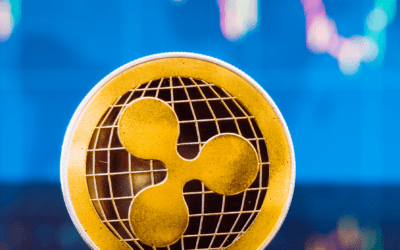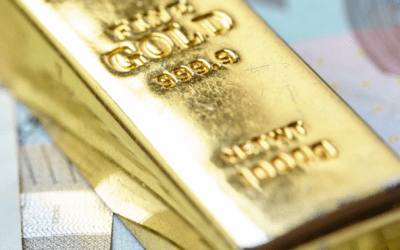Dateline: Phnom Penh, Cambodia
Frontier markets offer a unique investment opportunity. Disconnected from the rest of the world and far less reliant on the global monetary system than most others, these countries offer a less-traveled path to protecting your wealth.
The reason for this is because, more often than not, a combination of immense growth and economic self-reliance allows frontier markets to completely bypass any global financial crisis. This is contrary to popular opinion that such “third world countries” are “dangerous” to invest in.
Cambodia is a perfect example. Andrew has spent extensive time in Cambodia and has spoken quite favorably about it as an excellent emerging market for investors.
He even made the case why he himself wanted to buy property here by listing his top five reasons for doing so.
Cambodia is a rare bird. Having skipped the 2008 Financial Crisis, the Dot Com Bubble, and the Asian Financial Crisis of the late 90s, this country located in the heart of Southeast Asia has propelled past all obstacles and maintained GDP growth of more than 8% over the last decade.
In fact, Cambodia hasn’t had negative growth since Pol Pot left power in the mid-1990s. The Khmer Rouge obviously never kept track of such statistics, but most estimations show that Cambodia hasn’t suffered a recession in over 50 years.
The only problem is that frontier markets, as a byproduct of their disconnection, are hard to invest in because of their poor financial infrastructure.
Cambodia, for example, has exactly three stocks listed on its exchange – all of them government ventures looking for public financing, such as Phnom Penh Water Supply and Telecom Cambodia.
That’s where real estate comes into play.
Besides having numerous other benefits with regards to taxes, privacy, and much more, real estate is often the only feasible way for “normal people” to invest in frontier markets.
It’s almost needless to say that real estate in Cambodia isn’t just used as a tool to preserve wealth, but also to grow it.
The number of expats in the capital city of Phnom Penh is growing at a rapid pace, but there are not nearly enough apartments that are up to international standards.
Because of this, there is a lot of money to be made by renovating old, French-colonial style apartments, and then either flipping or renting them out.
Locations for Real Estate in Cambodia
Cambodia has three major cities: the nation’s capital of Phnom Penh, the beach resort of Sihanoukville, and Siem Reap, the gateway to Angkor Wat. However, Phnom Penh has by far the largest amount of well-paid expats and working professionals.
Siem Reap and Sihanoukville have a growing number of foreign residents in their own right, but for the most part, they are retirees or semi-nomadic, short-term visitors who may not even have $1,000 per month to spend on rent.
Phnom Penh is a rather small city compared to most other Asian capitals, only having a population of around 2 million in the metro area. This is not a bad thing though, as it gives it a very well defined central core which is ideal for choosing locations.
Specifically, the area near Phnom Penh’s Central Market, the Russian Quarter, and the Boeung Keng Kang or BKK, areas are all prime locations with good prospects for future capital appreciation.
The Riverside also offers potential at dirt-cheap costs; I saw an apartment for $23,000 there. It barely had a view and was in need of some work, but if you don’t mind being part of a neighborhood that includes questionable massage parlors, it’s a cheap way to invest.
There is less supply of larger apartments than smaller apartments in central Phnom Penh so if focusing on the expat market, two or even three bedrooms is an ideal size for investment.
Buying Property in Cambodia: Profitable but Difficult
Once you’ve chosen a location or a specific apartment, the buying process starts. This is not necessarily difficult, but there are certainly a few things to be aware of. Cambodia is a frontier market, after all, and things are rarely streamlined.
Like most other countries in Southeast Asia, foreigners may legally own apartments but not land or the houses that sit on them – but it gets more complicated. Perhaps the most unique aspect of buying property in Cambodia is the distinction between “hard titles” and “soft titles”.
Many documents and papers were destroyed during the rule of the Khmer Rouge, and included in these were practically every title deed in the country. The national government to this day still keeps only a small percentage of land, property, and apartments along with their owners recorded with them.
Instead, almost all property in Cambodia is held through “soft titles”, which are recorded through local districts rather than the national government.
Soft titles reflect about as much of a claim as hard titles do, but one major difference is the amount of due diligence which needs to be done before buying property with a soft title.
Whereas an apartment with a hard-title simply has all the information about it, from the land size to the legal owner, in a government database, an apartment with a soft title may have the same information taking form in various scattered papers such as a letter of transfer or a certificate of ownership from the district office.
Therefore, it’s important to gather as much information as possible when buying real estate in Cambodia and even ask neighbors about the details of their own property to avoid any potential overlapping claims.
If this all sounds like a bit of a pain, it’s probably because it is. However, this is also precisely the reason why property in Cambodia is still such a good value. There are large returns to be made, but anyone not comfortable with investing in a frontier market by themselves may wish to look into a real estate fund.









